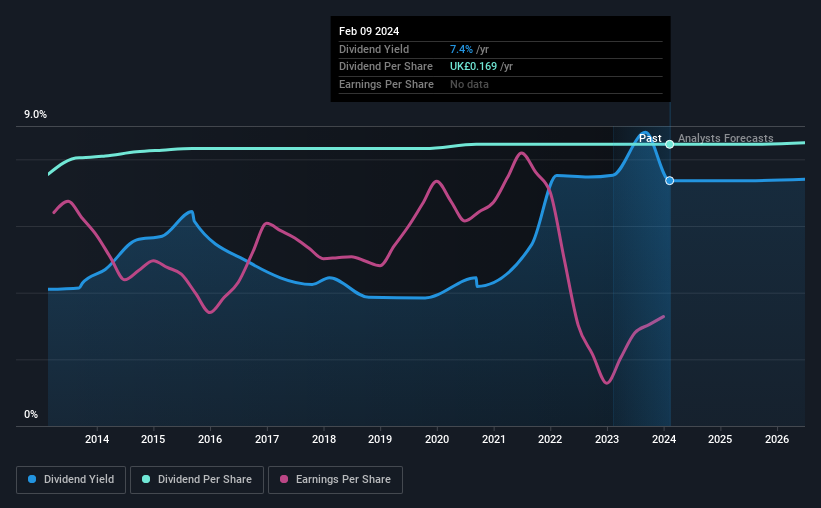Ashmore Group (LON:ASHM) Is Due To Pay A Dividend Of £0.048
Ashmore Group Plc's (LON:ASHM) investors are due to receive a payment of £0.048 per share on 2nd of April. This makes the dividend yield 7.4%, which will augment investor returns quite nicely.
While the dividend yield is important for income investors, it is also important to consider any large share price moves, as this will generally outweigh any gains from distributions. Investors will be pleased to see that Ashmore Group's stock price has increased by 36% in the last 3 months, which is good for shareholders and can also explain a decrease in the dividend yield.
See our latest analysis for Ashmore Group
Ashmore Group Doesn't Earn Enough To Cover Its Payments
If the payments aren't sustainable, a high yield for a few years won't matter that much. Prior to this announcement, the company was paying out 116% of what it was earning. This situation certainly isn't ideal, and could place significant strain on the balance sheet if it continues.
EPS is set to fall by 10.6% over the next 12 months. Assuming the dividend continues along recent trends, we believe the payout ratio could reach 128%, which could put the dividend under pressure if earnings don't start to improve.
Ashmore Group Has A Solid Track Record
The company has an extended history of paying stable dividends. Since 2014, the annual payment back then was £0.151, compared to the most recent full-year payment of £0.169. This works out to be a compound annual growth rate (CAGR) of approximately 1.1% a year over that time. Dividends have grown relatively slowly, which is not great, but some investors may value the relative consistency of the dividend.
Dividend Growth May Be Hard To Come By
Investors who have held shares in the company for the past few years will be happy with the dividend income they have received. Unfortunately things aren't as good as they seem. It's not great to see that Ashmore Group's earnings per share has fallen at approximately 7.0% per year over the past five years. Declining earnings will inevitably lead to the company paying a lower dividend in line with lower profits.
Ashmore Group's Dividend Doesn't Look Sustainable
In summary, while it's good to see that the dividend hasn't been cut, we are a bit cautious about Ashmore Group's payments, as there could be some issues with sustaining them into the future. We can't deny that the payments have been very stable, but we are a little bit worried about the very high payout ratio. We would probably look elsewhere for an income investment.
Companies possessing a stable dividend policy will likely enjoy greater investor interest than those suffering from a more inconsistent approach. Meanwhile, despite the importance of dividend payments, they are not the only factors our readers should know when assessing a company. For example, we've picked out 2 warning signs for Ashmore Group that investors should know about before committing capital to this stock. Looking for more high-yielding dividend ideas? Try our collection of strong dividend payers.
Have feedback on this article? Concerned about the content? Get in touch with us directly. Alternatively, email editorial-team (at) simplywallst.com.
This article by Simply Wall St is general in nature. We provide commentary based on historical data and analyst forecasts only using an unbiased methodology and our articles are not intended to be financial advice. It does not constitute a recommendation to buy or sell any stock, and does not take account of your objectives, or your financial situation. We aim to bring you long-term focused analysis driven by fundamental data. Note that our analysis may not factor in the latest price-sensitive company announcements or qualitative material. Simply Wall St has no position in any stocks mentioned.

 Yahoo Finance
Yahoo Finance 
